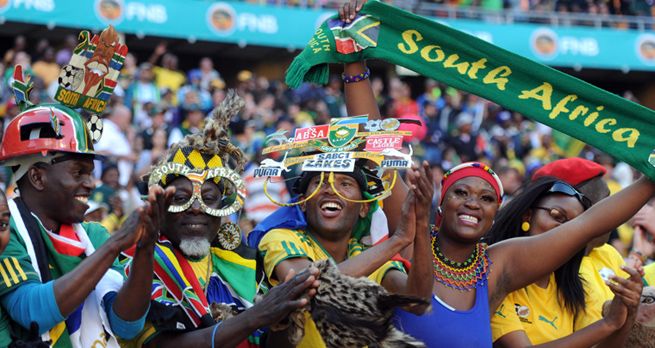Learn the local South African lingo

Because local is lekker 🤙
Every country has its own unique slang language that the locals love to use and South Africa is no different. The melting pot of cultures, races and nationalities has created a very colorful vocab that can be quite foreign to visitors. So here's a quick summary of some of the most popular terms and how to use them correctly;
- Ag, no man! [ach—no-mun]
It might be translated as “Oh, man!”, but is used to express pity, resignation or irritation. " Ag,no man the Bokke lost the match!" - Aikona! [eye-koh-na]
A Zulu term used to express shock or disbelief in a negative manner. "Aikona, Fuel prices are going up again!" - Babbelas [bub-ba-las]
Derived from the Zulu word ‘ibhabhalazi’, it is used to describe a bad hangover. "He had a lekker babbelas after last night's jol" - Bakkie [buck-kie]
Pick up truck. "Ford Ranger bakkie" - Biltong [bill—tong]
Its like American beef Jerky, only with much more flavor and Yum! "Lekker stuk biltong" - Bliksem [bluhk–sim]
To hit someone, but often used as an expression of surprise too. "I'm going to bliksem you!" - Boet [like boot,only different]
Usually used to address a male in a friendly manner —technically means "brother". "Howzit, boet?" - Bra / Bru [brah and brew]
Used to call a friend. Very popular among surfers and younger men. "Sup, bru?" - Braai [brr-rye]
Pretty similar to a barbecue. The most popular way to socialize with friends and family. The most popular dinner on a Saturday night, countrywide. Learn to love it, because we do it alot. "Join us for a lekker Braai after the rugby." - Eish! [ay-sh]
A Khoi-San expression for when someone experiences surprise or disappointment. "Eish! Eskom load shedding again." - Gatvol [ghut-foll]
Literally meaning ‘filled to the brim’, this is used to describe someone who is very angry or tired. "He's gatvol!" could mean "He's had enough!". - Howzit [How-zit]
Meaning "how are you?", It's often used as a greeting, saying "Howzit, my bru?". - Ja, Nee [ya—nee—ah]
This literally means "Yes, no". The phrase is used to express agreement or confirmation with someone or something, usually in a disappointed tone. - Jislaaik [yis-like]
This is said when expressing shock. - Jol [jorl]
To have a good time. - Laaitie [light-e]
Describes someone's young son. "My laaitjie is 5 years old" - Laduma! [laa-doo-maa]
From Zulu, it translates to "it thunders" and is screamed out when a soccer team scores a goal. - Lekker [lack-err]
An Afrikaans word that means "nice" or "good". It gets used by everyone for almost anything though. "Lekker man, lekker" - Now now [now x2]
I'll do what you asked, but not straight away. Don't ask for clarification on inferred time frame as there isn't one. "We'll fetch you now now" could mean 5 minutes or 3 hours. - Pooitjie [Pooi-kie]
Afrikaans word meaning stew, always cooked in a cast iron pot on a fire like a braai, mainly a winter alternative to the traditional braai. - Tekkies [tekkies]
Afrikaans word for sneakers. "Put your tekkies on." - Slops [say it like it looks]
Beach flip flops. "I cant find my slops." - Yebo [yeah-boh]
Meaning "yes", It's often used as a double positive, saying "Yebo yes!".
